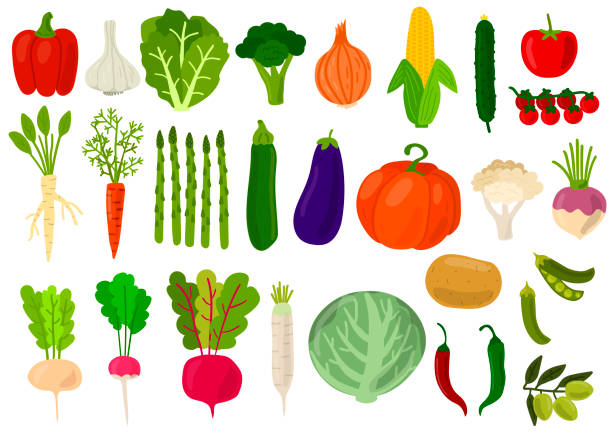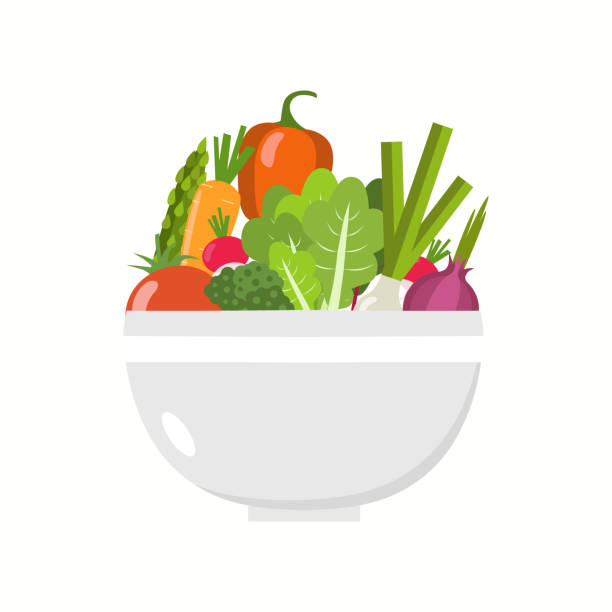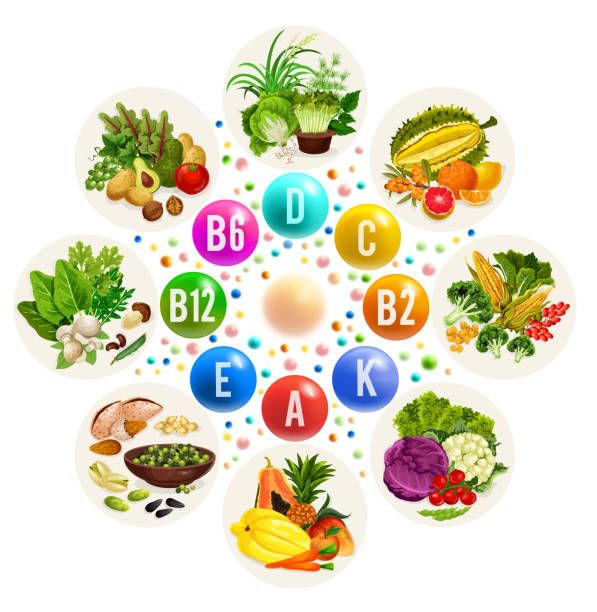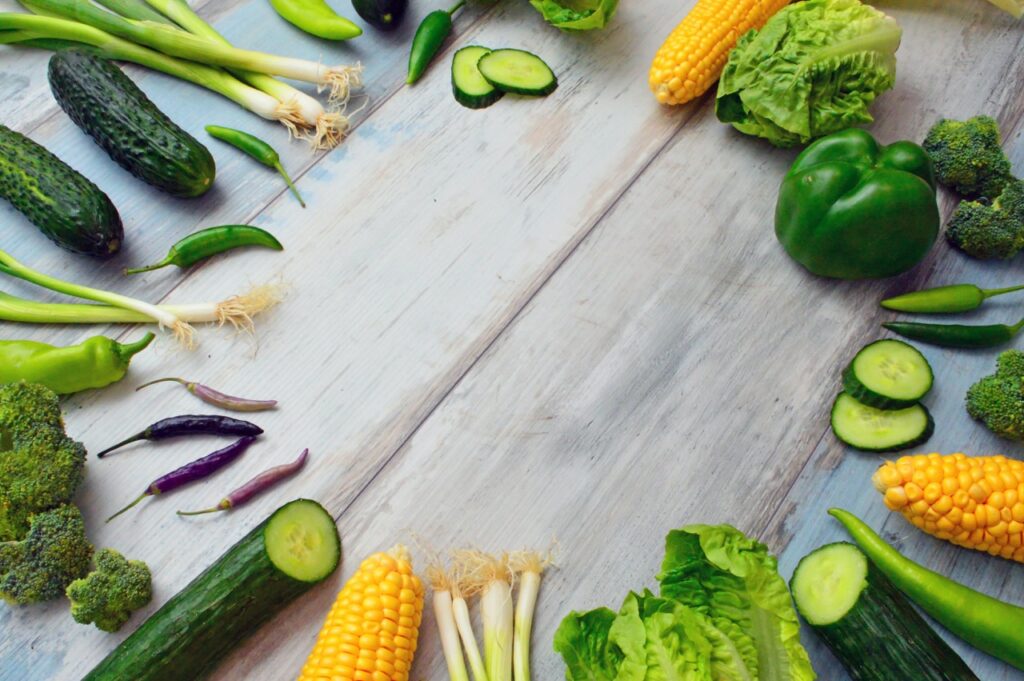Diet & Nutrition, Nutrition, What to Eat and Drink
What Vegetables Have The Most Vitamins
Maintaining excellent health requires a well-balanced diet rich in veggies. Vegetables contain crucial vitamins and minerals that help the body function properly. However, not all veggies have equal vitamin content. Some vegetables are exceptionally high in specific vitamins, making them an excellent supplement to any diet.
Vitamin C is one of the most significant nutrients present in plants. This vitamin is required for the maintenance of a healthy immune system, as well as tissue growth and repair. Bell peppers, broccoli, Brussels sprouts, and kale are among the veggies with the highest vitamin C content. These vegetables are high in vitamin C, but also include fiber and antioxidants.
Another vital vitamin present in veggies is vitamin A. This vitamin is necessary for proper vision, skin, and immunological function. Vitamin A-rich vegetables include sweet potatoes, carrots, spinach, and kale. These vegetables can be consumed raw or cooked, and they make an excellent addition to salads, stir-fries, and soups. Individuals who incorporate these vitamin-rich veggies into their diet can assist guarantee that they are receiving the nutrients they require to stay healthy.

Nutritional Powerhouses: Vegetables Rich in Vitamins and Minerals
Vegetables play an important role in sustaining a healthy diet. They provide vital vitamins, minerals, and nutrients that help the body function properly. In this section of the article, we’ll look at some of the most nutritious veggies and the health benefits they provide.
Leafy Greens: Spinach, Kale, and Swiss Chard
Leafy greens are among the most nutrient packed veggies available. Spinach, kale, and Swiss chard provide high levels of vitamins A, C, and K, as well as calcium, iron, and magnesium. They are also high in fiber and antioxidants, which may help lower the risk of chronic diseases including heart disease and cancer.
Cruciferous Vegetables: Broccoli, Brussels Sprouts, and Cauliflower
Cruciferous vegetables are another type of vegetable high in vitamins and minerals. Broccoli, Brussels sprouts, and cauliflower are rich providers of vitamin C, folate, and fiber. They also contain antioxidants, which can help protect the body from free radical damage.
Root Vegetables: Carrots, Beets, and Sweet Potatoes
Root vegetables are high in vitamin and mineral content, as well as fiber. Carrots, beets, and sweet potatoes are all high in vitamin A, which is required for normal vision and immunological function. They are also high in potassium, which can help manage blood pressure, and magnesium, which is essential for strong bones.
In conclusion, including a variety of nutrient-dense veggies in your diet is critical for sustaining good health. Leafy greens, cruciferous veggies, and root vegetables are all fantastic options that provide numerous health benefits. By include these vegetables in your meals, you can guarantee that your body receives the vitamins, minerals, and nutrients it requires to function properly.

Specific Vitamins and Their Vegetable Sources
Vegetables are a wonderful supply of important vitamins. Here are some specific vitamins and the vegetables that contain them.
Vitamin A: Carrots and Sweet Potatoes
Carrots and sweet potatoes are high in vitamin A, which is necessary for clear vision, healthy skin, and a strong immune system. These veggies contain beta-carotene, which the body converts to vitamin A.
B Vitamins: Spinach, Broccoli, and Peas
Spinach, broccoli, and peas are great providers of B vitamins. B vitamins are required to maintain healthy skin, eyes, and liver. They also play an important part in making red blood cells and keeping the neurological system running smoothly.
Vitamin C: Bell Peppers, Kale, and Broccoli
Bell peppers, kale, and broccoli are high in vitamin C, which is necessary for a strong immune system. Vitamin C also aids in the body’s iron absorption and collagen production, both of which are necessary for good skin.
Vitamin K: Kale, Spinach, and Swiss Chard
Kale, spinach, and Swiss chard are high in vitamin K, which promotes blood clotting and bone health. Vitamin K also regulates blood calcium levels and improves cardiovascular health.
In addition to critical vitamins, veggies provide fiber, folate, and cancer-fighting qualities. Including a variety of veggies in your diet can improve your general health and well-being.

Health Benefits of Vitamin-Rich Vegetables
Vitamin-rich veggies have numerous health benefits, such as increased cardiovascular health, cancer prevention, blood pressure regulation, and bone health.
Cardiovascular Health: Leafy Greens and Cruciferous Vegetables
Leafy greens and cruciferous vegetables, such as kale, spinach, broccoli, and Brussels sprouts, are high in vitamins A, C, K, folate, and potassium. These nutrients minimize the risk of heart disease, stroke, and high blood pressure.
Cancer Prevention: Rich in Antioxidants and Glucosinolates
Vegetables high in antioxidants and glucosinolates, such as tomatoes, carrots, and cabbage, have been demonstrated to lower cancer risk. Antioxidants protect cells from free radical damage, but glucosinolates inhibit the growth of cancer cells.
Bone Health and Blood Pressure Regulation
Sweet potatoes, beets, and leafy greens are high in potassium, which helps with blood pressure regulation and bone health. Vitamin K, which is present in leafy greens, is also important for bone health since it increases bone density.
Including a range of vitamin-rich veggies in your diet can provide significant health benefits and lower your risk of various ailments.
Conclusion
To optimize our meals for better health, we must first discover which veggies have the most vitamins. This is also true when it comes to improving our diet for better health. A variety of nutrient-dense vegetables can be included in one’s diet to provide the vital vitamins and minerals required for overall health. These vegetables include broccoli, bell peppers, spinach, and kale. By making judgments based on facts and broadening the variety of vegetables we eat, we can ensure that our bodies are getting the vitamins they need to grow.
Journey of self discovery


